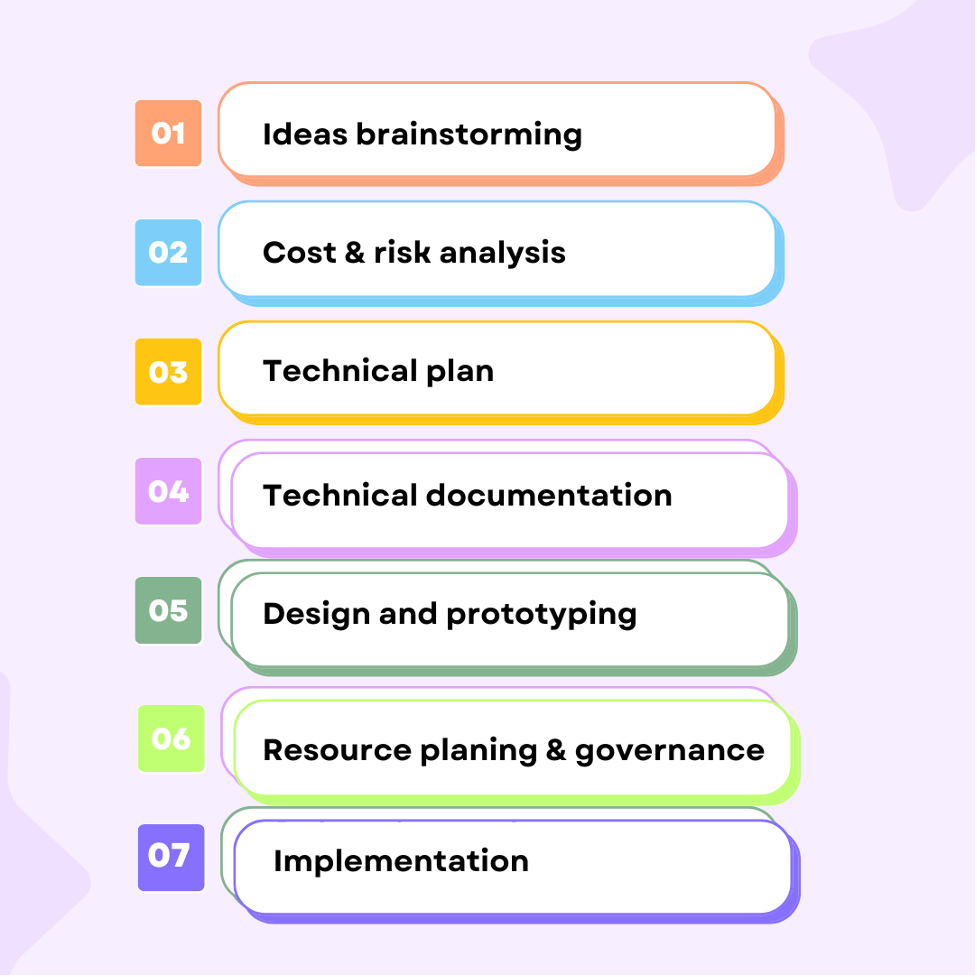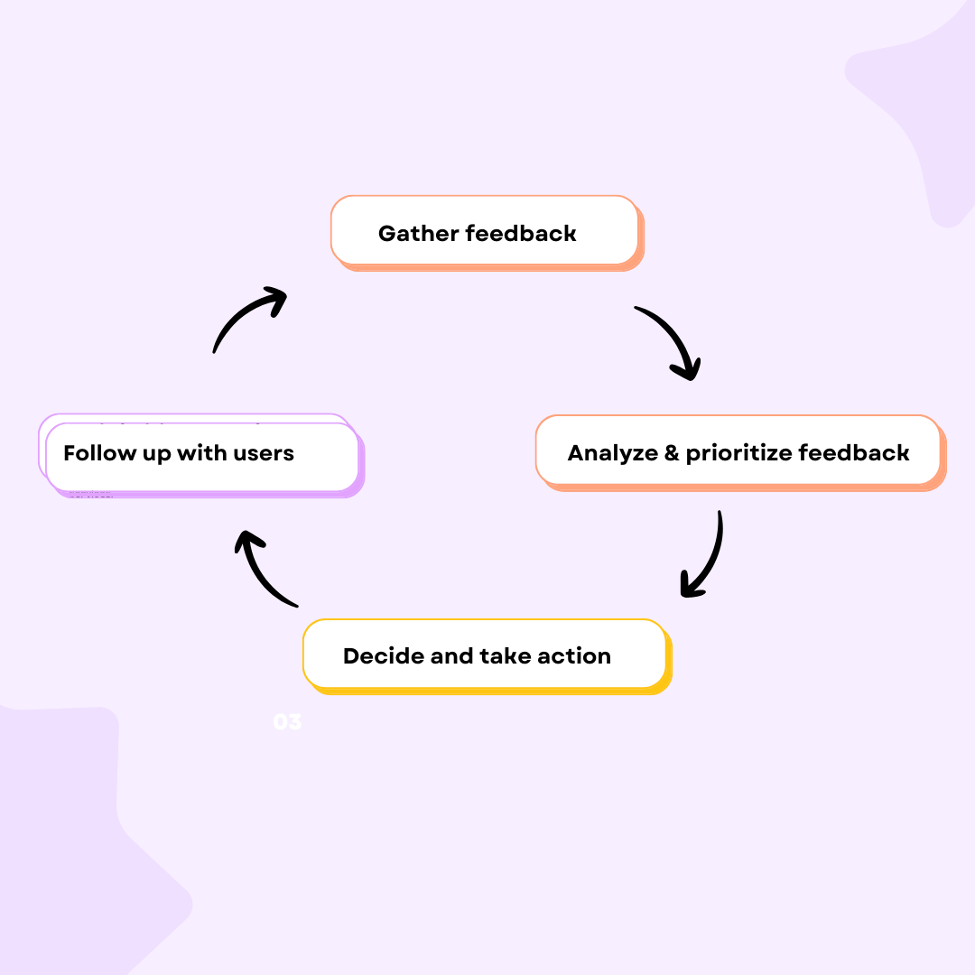A minimum viable product is the simplest version of a product or service with minimum features meant to idealize a concept and experience its features. A scalable MVP involves several foundational steps, including identifying market demands, product discovery, conceptualizing the product, building a roadmap, developing an MVP, and iterating the MVP based on feedback. This comprehensive process ensures the MVP meets market demands and identifies potential customer segments before the development begins.

Leveraging Data for Scalable MVP Development
Building a flexible and scalable MVP in the fintech domain comes with challenges. One primary challenge can be predicting users’ demands and ensuring they meet them in time. As the user base grows, the MVP must be flexible enough to adopt a larger user base and new features without compromising the system’s efficiency.
This involves choosing the proper architecture, processes, and technologies to support scalability. Therefore, it is essential to plan carefully and ensure the strategic use of data before heading towards the development phase.
In the 2024 Data and AI Leadership Executive Survey, 87.9% of participants reported that investments in data and analytics are a top organizational priority. Data is an important asset in understanding and predicting patterns and user behaviors that can be used to make informed decisions and develop a scalable Fintech MVP. Leveraging the advancement of artificial intelligence and predictive machine learning models can help us find complex user behaviors and patterns.
1. Data-Driven Market Validation
Data-driven research approaches enable us to take a closer look at current user behaviors and gain valuable insights into market trends. It also comes in handy with audience segmentation, user needs, understanding the user’s pain points, and minimizing financial and product failure risks. According to a survey conducted by PwC, a highly data-driven organization makes three times better decisions than those who don’t rely on data.
To enhance these manual market research tasks, various artificial intelligence-based tools can be used to process large datasets and find valuable insights. Utilizing an AI app for market research and MVP idea validation significantly enhances the accuracy and efficiency of market research.
2. Smart Feature Prioritization
Smart feature prioritization is important to develop a scalable FinTech MVP that meets user needs. It is an in-depth data-driven approach that helps identify the most valuable feature to develop first to maximize the product value. Additionally, analyzing customer feedback and behavioral data allows us to gain real-time insights into the most desired features and how they impact the user experience of the MVP development.
3. Infrastructure Planning With Data
Infrastructure planning plays a vital role in ensuring the scalability and flexibility of an MVP. The choice of database, cloud solutions, and tech stack significantly impacts the MVP’s ability to handle increased loads and adopt new features without compromising the system’s performance.
Modern database and cloud solutions come with useful features, offering various key performance indicators to continuously monitor MVP performance and user behaviors and predict future needs.
These advanced analytics tools and monitoring systems enable us to adopt a proactive approach to knowing the potential needs of the hour and making informed decisions with the current data. Leveraging data in infrastructure planning, fintech startups can build scalable MVPs capable of supporting future growth and adapting to evolving user needs.
4. Iterative Scaling Based on Metrics
Planning clear and quantifiable goals such as user acquisition, retention rates, system uptime, and performance benchmarks is essential to track the growth and scalability of a FinTech MVP. To achieve the desired goals, you should analyze the key metrics and user feedback.
For instance, metrics like retention rates can indicate user satisfaction and their likelihood for long-term engagement. Similarly, analyzing user feedback to uncover the user’s pain points, monitoring system uptime, and performance benchmarks ensure the capability of handling a larger user base without compromising its efficiency. Ultimately, this interactive data-driven scaling approach enhances the MVP’s efficiency and ensures its long-term success in the competitive fintech domain.

Scalable MVPs: A Data-Focused Framework for Growth
To summarize, developing a scalable fintech MVP requires a data-driven approach, from market research to smart feature prioritization, analyzing KPIs using AI-based data analytics tools, and leveraging the expertise of data scientists to gain valuable insights from the data and make informed decisions.
Lynn Martelli is an editor at Readability. She received her MFA in Creative Writing from Antioch University and has worked as an editor for over 10 years. Lynn has edited a wide variety of books, including fiction, non-fiction, memoirs, and more. In her free time, Lynn enjoys reading, writing, and spending time with her family and friends.















